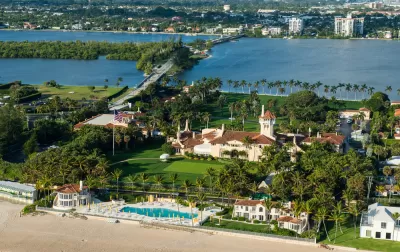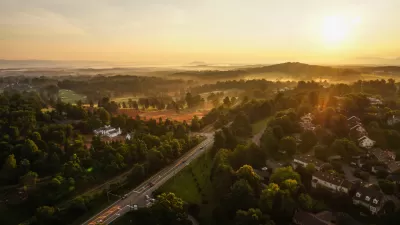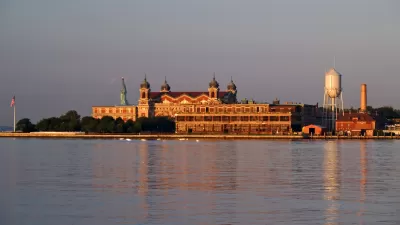And they have the receipts.

Manuel Roig-Franzia and Carol D. Leonnig report on a strange turn of events for President Donald Trump's plans to reside in Palm Beach, Florida once his presidential term is over: his future neighbors don't want him to live it Mar-a-Lago, and they say that an agreement signed by the president in 1993 prevents him from doing so.
"In the demand letter, obtained by The Washington Post, an attorney for the Mar-a-Lago neighbors says the town should notify Trump that he cannot use Mar-a-Lago as his residence," write Roig-Franzia and Leonnig. "Making that move would 'avoid an embarrassing situation' if the outgoing president moves to the club and later has to be ordered to leave, according to the letter sent on behalf of the neighbors, the DeMoss family, which runs an international missionary foundation.
The 1993 agreement signed by Trump prohibits club members from staying in the club's guest suites for more than 21 days total a year, and limits stays to no more than seven days consecutively.
"The legal maneuver could, at long last, force Palm Beach to publicly address whether Trump can make Mar-a-Lago his legal residence and home, as he has been expected to do, when he becomes an ex-president after the swearing-in of Joe Biden on Jan. 20," according to the article.
Roig-Franzia and Leonnig note, however, that Palm Beach has been lax in enforcing other parts of the agreement.
Another article by Zack Budryk provides additional coverage of the controversy.
Both articles note that Trump's disagreements with neighbors of Mar-a-Lago date back to before Trump's presidency, but complains about traffic jams and other frustrations have continued throughout the past four years.
FULL STORY: Mar-a-Lago neighbors to Trump: Spend your post-presidency elsewhere

Planetizen Federal Action Tracker
A weekly monitor of how Trump’s orders and actions are impacting planners and planning in America.

Congressman Proposes Bill to Rename DC Metro “Trump Train”
The Make Autorail Great Again Act would withhold federal funding to the system until the Washington Metropolitan Area Transit Authority (WMATA), rebrands as the Washington Metropolitan Authority for Greater Access (WMAGA).

DARTSpace Platform Streamlines Dallas TOD Application Process
The Dallas transit agency hopes a shorter permitting timeline will boost transit-oriented development around rail stations.

Renters Now Outnumber Homeowners in Over 200 US Suburbs
High housing costs in city centers and the new-found flexibility offered by remote work are pushing more renters to suburban areas.

The Tiny, Adorable $7,000 Car Turning Japan Onto EVs
The single seat Mibot charges from a regular plug as quickly as an iPad, and is about half the price of an average EV.

Supreme Court Ruling in Pipeline Case Guts Federal Environmental Law
The decision limits the scope of a federal law that mandates extensive environmental impact reviews of energy, infrastructure, and transportation projects.
Urban Design for Planners 1: Software Tools
This six-course series explores essential urban design concepts using open source software and equips planners with the tools they need to participate fully in the urban design process.
Planning for Universal Design
Learn the tools for implementing Universal Design in planning regulations.
Municipality of Princeton
Roanoke Valley-Alleghany Regional Commission
City of Mt Shasta
City of Camden Redevelopment Agency
City of Astoria
Transportation Research & Education Center (TREC) at Portland State University
US High Speed Rail Association
City of Camden Redevelopment Agency
Municipality of Princeton (NJ)





























